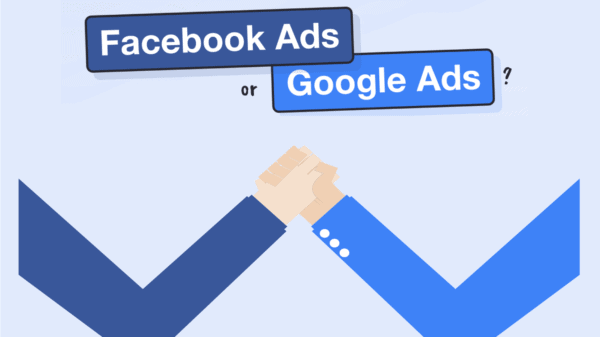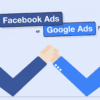Will Facebook at Work mark the next logical step in workplace collaboration?
Facebook already has a presence on most employees’ work computers, regardless of whether their bosses condone it. So it shouldn’t be all that surprising that the company is in the pilot stages of a new version of its social media platform specifically designed for intra-office communication.
Despite stiff competition from major companies such as Microsoft and buzz-heavy startups such as Slack, Facebook has good reason to believe it can be successful in the increasingly crowded enterprise space.
After all, 1.55 billion people already use Facebook regularly, meaning that the company will be releasing a product with almost no learning curve and an absurdly vast built-in audience. By sheer momentum, Facebook is nearly guaranteed a spot at the table — at least initially — and other companies will be forced to compete with its offerings.
But while Facebook at Work may make sense from a brand perspective, does it make sense for businesses looking for the best collaboration tools? Can it offer everything teams need to get work done? And will its dominance in the home help or hinder its chances when it’s introduced in the workplace?
Facebook’s Strengths Are Its Weaknesses
When taken at face value, Facebook at Work has the potential to be a slam dunk, for three simple reasons:
- Nearly everybody already knows how to use it, eliminating training costs almost completely.
- A single platform for personal and professional lives will reduce friction when switching between the two. Plus, it could potentially yield smarter assistance if it’s allowed to tap into data from both networks.
- People already check Facebook at work; this just legitimizes it. As a result, the potential for greater efficiency exists simply because it will never leave an employee’s screen.
But these features are also potential problems for employees and employers. A single network for both personal and professional lives could mean a convergence that is worrisome on a security level and that could be more distracting than helpful. While Facebook representatives currently claim that employees’ home profiles will not connect with their Facebook at Work accounts, the potential problems remain.
For one thing, Facebook doesn’t have the greatest standing when it comes to privacy and security. In the personal realm, this can be embarrassing — not every picture on Facebook is necessarily a proud one — but at work, where confidential documents are shared, this could be disastrous.
Facebook’s stature as a productivity tool, meanwhile, isn’t much better. Its image as a “time waster” is cemented in the minds of most companies, and the wealth of features Facebook at Work offers might overwhelm employees with distractions, rather than make professional collaborations easier.
To succeed in the workplace, Facebook must do more than create a new network for coworkers: It will have to foster an image of security and professionalism both on and off the website.
Despite these hurdles, Facebook has one thing going for it that cannot be ignored: its size.
Regardless of long-term success, this product won’t simply fade away, and competitors will have to take it seriously, which could spell good advances in enterprise.
Time for Enterprise Collaboration to Adapt
Facebook’s entry into the enterprise market confirms what other startups like Slack already know: The enterprise collaboration space is hot and getting hotter. New competitors will continue to enter the market over the next few years. And, more worrisome for incumbents, many of those new players will probably build their apps on Facebook’s platform.

Existing solutions will have to answer to Facebook, which will most likely be good news for business for a number of reasons:
- The consumer experience will reign supreme. This is already happening with workplace chat tools, but Facebook’s consumer-centric design (as opposed to a more traditional enterprise interface) will force competitors to change the way enterprise software design is approached, focusing on the user, rather than on the department doing the purchasing.
- User data will become an asset. Facebook has vast user data that if handled correctly could be used to illuminate previously unseen business connections and even help improve productivity. To compete, other enterprise companies will have to start turning user interactions into smart data.
- All-in-one solutions will become the future. Facebook at Work will further motivate developers to build enterprise software platforms that combine multiple apps or services, especially in the collaboration space. Salesforce already successfully pioneered this approach, and Facebook at Work will make developers take one more step in that direction.
- The market will consolidate. One way to create an all-in-one solution is to buy up the features you’re missing. Players like Slack, Dropbox, and LinkedIn will most likely try to move to an all-encompassing platform and establish their dominance in the market by buying up smaller competitors.
It’s too soon to predict Facebook at Work’s long-term success because it’s hard to say which direction the company will take its initial offering. If Facebook can gain traction, having a single platform that unifies all workplace collaboration apps and enterprise software could become the holy grail for businesses.
If it can make a convincing argument that it fits in current enterprise work streams, Facebook’s new platform could be here to stay. And even if it isn’t, these next few years with Facebook as a competitor should mean a net gain for the enterprise world.
TX Zhuo is a managing partner of Karlin Ventures, an L.A.-based venture capital firm that focuses on early-stage enterprise software and marketplaces. Follow the company on Twitter.
TX Zhuo is a managing partner of Karlin Ventures, an L.A.-based venture capital firm that focuses on early-stage enterprise software and marketplaces. Follow the company on Twitter @KarlinVentures.

1 Comment
Leave a Reply
Cancel reply
Leave a Reply
This site uses Akismet to reduce spam. Learn how your comment data is processed.























































































































































































Richie
March 31, 2016 at 2:34 pm
Nice piece, Zhuo!
This feature of Facebook can help you create a work account to interact with coworkers apart from your personal fb account. This is a very helpful feature for all enterprise world.